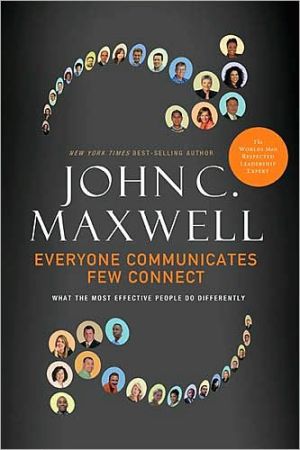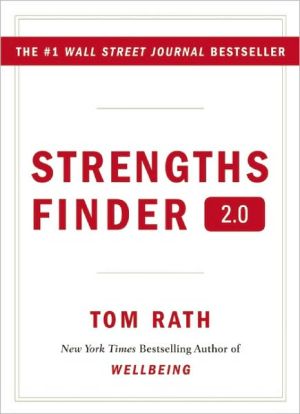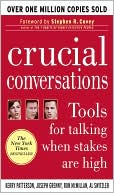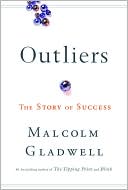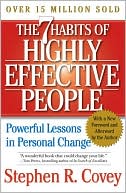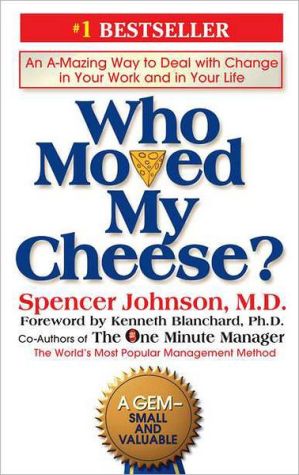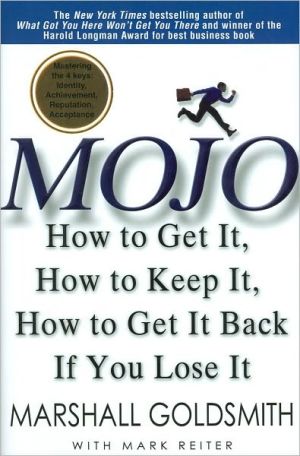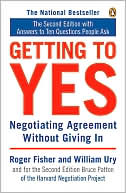Everyone Communicates, Few Connect: What the Most Effective People Do Differently
World-renowned leadership expert John C. Maxwell says if you want to succeed, you must learn how to connect with people. And while it may seem like some folks are just born with it, the fact is anyone can learn how to make every communication an opportunity for a powerful connection. In Everyone Communicates, Few Connect, Maxwell shares the Five Principles and Five Practices to develop the crucial skill of connecting, including.\ Finding Common ground\ Keeping your communication simple\...
Search in google:
The world's most respected leadership expert gives five principles and five practices for breaking the invisible barrier to leadership and personal success.You have a good idea but can't convince your peers of its merit. You crafted a groundbreaking strategy, but the team trudges on in the same old way. Certain people move forward in their career while you seem to be stuck. If this describes you or someone you know, the problem is not the quality of what you have to offer. The problem is how you connect with people to create the results you desire.In Everyone Communicates, Few Connect, John Maxwell takes readers through the Five Connecting Principles and the Five Connecting Practices of top-notch achievers. He believes that a person's ability to create change and results in any organization-be it a company, church, nonprofit, or even a family-is directly tied to the ability to use the teachings of this book. Publishers Weekly Full of anecdotes from readers of his books (including Encouragement Changes Everything) and his website (www.JohnMaxwellonLeadership.com), the latest self-help from prolific bestseller Maxwell is so readable, audiences may not realize until the end that it contains little in the way of practical advice. Instead, Maxwell offers vague platitudes like, "being a giver is usually a win-win. It can energize you while it helps others," without providing the meaning or context to make proper advice (what would "a giver" look like in conversation? How can readers become givers?). A great deal of the book is devoted to first-person anecdotes by those who have worked with Maxwell and his books, who make much of Maxwell's skills, but little of the steps they took to improve their own communication abilities. Those looking for concrete help won't find it here; Maxwell doesn't get much more specific than when he writes, "Connecting is the ability to identify with people and relate to them in a way that increases your influence with them." Copyright © Reed Business Information, a division of Reed Elsevier Inc. All rights reserved.
EVERYONE COMMUNICATES, FEW CONNECT\ WHAT THE MOST EFFECTIVE PEOPLE DO DIFFERENTLY \ \ By JOHN C. MAXWELL \ Thomas Nelson\ Copyright © 2010 John C. Maxwell\ All right reserved.\ ISBN: 978-0-7852-1425-0 \ \ \ Chapter One\ Connecting Increases Your Influence In Every Situation \ According to experts, we are bombarded with thirty-five thousand messages a day. Everywhere we go, everywhere we look, someone is trying to get our attention. Every politician, advertiser, journalist, family member, and acquaintance has something to say to us. Every day we are faced with e-mails, text messages, billboards, television, movies, radio, Twitter, Facebook, and blogs. Add to these newspapers, magazines, and books. Our world is cluttered with words. How do we choose which messages to tune in and which ones to tune out?\ At the same time, we also have messages we want to get across to others. I've read that, on average, most people speak about sixteen thousand words a day. If you transcribed those words, they'd fill a three-hundred-page book every week. At the end of a year, you would have an entire bookcase full of words. In a lifetime, you'd fill a library. But how many of your words would matter? How many would make a difference? How many would get through to others?\ Talk is easy. Everybody talks. The question is, how can you make your words count?\ How can you really communicate with others?\ Connecting Can Make You or Break You\ People cannot succeed in life without communicating effectively. It's not enough just to work hard. It's not enough to do a great job. To be successful, you need to learn how to really communicate with others.\ Have you ever gotten frustrated while making a presentation because people just weren't getting it? Have you ever wanted your boss to understand how much value you add to the company so you could get a well-earned raise or promotion? If you have children, have you wanted them to listen so you could help them make good choices? Have you wanted to improve your relationship with a friend or make a positive impact on your community? If you can't find a way to communicate effectively, you won't be able to reach your potential, you won't succeed in the way you desire, and you'll be forever frustrated.\ What's the secret? Connecting! After more than forty years of marriage, a long and successful career as a public speaker, decades of leading various organizations, and experience in helping people develop across the United States and in dozens of countries around the world, I can tell you this: if you want to succeed, you must learn how to connect with others.\ Connecting Is Key\ I am convinced more than ever that good communication and leadership are all about connecting. If you can connect with others at every level-one-on-one, in groups, and with an audience-your relationships are stronger, your sense of community improves, your ability to create teamwork increases, your influence increases, and your productivity skyrockets.\ What do I mean when I say "connect"? Connecting is the ability to identify with people and relate to them in a way that increases your influence with them. Why is that important? Because the ability to communicate and connect with others is a major determining factor in reaching your potential. To be successful, you must work with others. And to do that at your absolute best, you must learn to connect.\ How much healthier would your relationships be if you excelled at connecting? How would your marriage and family life improve? How much happier would your relationships with friends be? How much better would you be at getting along with your neighbors if you were able to connect with them?\ How would being a better connector impact your career? What would happen if you were fantastic at connecting with your coworkers? How would things change at work if you were better able to connect with your boss? According to the Harvard Business Review, "The number one criteria for advancement and promotion for professionals is an ability to communicate effectively." That means connecting! If you learned to connect better, it would change your life!\ Connecting Is Crucial for Leaders\ I am probably best known for my writing and speaking on leading. If you want to become more productive and influential, learn to become a better leader because everything rises and falls on leadership. And the best leaders are always excellent connectors.\ If you're interested in a case study in connecting in the context of leadership, all you have to do is look at the presidents of the United States from the last thirty years. Because every move of those presidents is documented in the press at home and around the world, most people are familiar with them.\ Presidential historian Robert Dallek says that successful presidents exhibit five qualities that enable them to achieve things that others don't: vision, pragmatism, consensus building, charisma, and trustworthiness. As leadership and communication consultant John Baldoni points out,\ Four of these factors depend heavily upon the ability to communicate on multiple levels. Presidents, like all leaders, need to be able to describe where they are going (vision), persuade people to come along with them (consensus), connect on a personal level (charisma), and demonstrate credibility, i.e., do what they say they will do (trust). Even pragmatism depends on communications ... So in a very real sense, leadership effectiveness, both for presidents and for anyone else in a position of authority, depends to a high degree upon good communication skills.\ And what do those communication skills depend on? Connecting!\ Set aside your political opinions and biases for a moment and look at the abilities of some past presidents. Consider the differences in connecting skill between Ronald Reagan and Jimmy Carter when they ran against one another. In their final debate on October 28, 1980, Carter came across as cold and impersonal. To every question he was asked, Carter responded with facts and figures. Walter Cronkite described Carter as humorless. Dan Rather called Carter stoic and disengaged. And as Carter made a case to be reelected, he seemed to bounce back and forth between trying to impress people by stating cold facts and trying to make his listeners feel sympathy for him and the burden of his job. At one point he stated, "I alone have had to determine the interest of my country and the involvement of my country," and he stated, "It's a lonely job." He never focused on his audience and their concerns.\ In contrast, Reagan was engaged with his audience and even with Carter. Before the debate, Reagan walked over to Carter to shake his hand, which seemed to startle the president. During the debate, when his opponent spoke, Reagan listened and smiled. When it was Reagan's turn to speak, his appeals were often directed to his audience. He wasn't trying to come across as an expert, though he did quote figures and dispute some of Carter's facts. He was trying to connect. Many remember his closing remarks, in which he asked people, "Are you better off than you were four years ago?" Reagan told his audience, "You made this country great." His focus was on the people. There couldn't have been a greater contrast between the Great Communicator and his predecessor.\ A similar contrast can be seen between Bill Clinton and his successor, George W. Bush. Clinton took communication to the next level as president. He equaled Reagan's ability to connect one-on-one as well as on camera. When he said, "I feel your pain," most people around the country connected with him. Clinton not only possessed Reagan's connection skills but also added to them a mastery of the interview and talk show formats, which was critical when he ran for election. He seemed never to miss an opportunity to try to connect. So far, no politician has surpassed him in connecting with others.\ Bush, on the other hand, seemed to miss nearly every opportunity to connect with people. His one clear moment of connection occurred immediately after September 11, 2001, when he spoke at Ground Zero. After that he usually fumbled and flopped when he tried to speak with others. His inability to connect alienated people and colored everything he did as president.\ Communication expert Bert Decker publishes a list every year of the top ten best and worst communicators of the year. Guess who was on the worst communicator list every year during his last term in office? That's right, President George W. Bush. In 2008, Decker wrote about Bush, "Soon after [9/11] he slipped back to the shrugs and smirks, and tangles of syntax and grammar. It perhaps reached a nadir in the response to Katrina. Such is not the communications of a leader. Having so little influence this past year, it is sad to put our president as the #1 worst communicator of 2008."\ If you follow politics, you probably have a strong opinion about Jimmy Carter, Ronald Regan, Bill Clinton, and George W. Bush. You can say what you will-either positive or negative-about their character, philosophy, or policies. But their effectiveness as leaders was definitely impacted by their ability or inability to connect.\ Connecting is crucial whether you're trying to lead a child or a nation. President Gerald Ford once remarked, "If I went back to college again, I'd concentrate on two areas: learning to write and to speak before an audience. Nothing in life is more important than the ability to communicate effectively." Talent isn't enough. Experience isn't enough. To lead others, you must be able to communicate well, and connecting is key.\ Connecting Helps in Every Area of Life\ Of course, connecting isn't just for leaders. It's for anyone who desires to be more effective at what he or she does or enjoy better relationships. I received many comments from people on my blog, JohnMaxwellOnLeadership.com, affirming this.\ I heard from business people such as Tom Martin, who described the importance of connection in his work. "To connect is to join, but to make a connection there has to be rapport," wrote Tom. "This is what I try to help our sales force to see as their role in transitioning a lead into a prospect, a prospect into a customer, and a customer into a client. It is those connected clients who become our greatest advocates to help us grow our business."\ I also heard from many teachers and trainers. Exceed Resources trainer and coach Cassandra Washington told me, "In the classroom, I teach that connection is key. Leadership is about connecting with people. Serving customers is about connecting. Raising kids ... connecting." An English as a Second Language teacher, Lindsay Fawcett, wrote that when she was in Hong Kong and mainland China, she noticed that whenever she went to a meeting, there was always a connection time planned before it started, with food and drinks provided so that people could get to know one another. It changed her perspective. "I am one of those people who grew up being able to do 'things' well, but I never understood the idea of connecting. I finally learned to connect with my students, which has helped me become a better teacher."\ Jennifer Williams, who had just moved into a new neighborhood, said that she went out of her way to meet new neighbors, talk to them, discover their occupations, and learn the names of their children and pets. As she did, people began to come together. "Wow," one neighbor told her, "until you moved in, we rarely talked, didn't know each other, and would never sit out in the evenings and socialize. Here you've been for less than two months, and you know everyone!" Jennifer says it's because "people want to be made to feel connected and a part of something." I agree, but I also recognize that she is a connector!\ When people possess the ability to connect, it makes a huge difference in what they can accomplish. You don't have to be a president or high-profile executive for connecting to add value to you. Connecting is vital for any person who wants to achieve success. It is essential for anyone who wants to build great relationships. You will only be able to reach your potential-regardless of your profession or chosen path-when you learn to connect with other people. Otherwise, you'll be like a nuclear power plant disconnected from the grid. You'll have incredible resources and potential, but you will never be able to put them to use.\ The Desire to Connect\ I am convinced that nearly anyone can learn to connect with others. Why? Because I learned how to do it. Connecting wasn't something I did naturally. When I was a kid, I wanted to connect with my parents, not just because I loved them but also because I suspected that if I had a good connection with my mother, it might keep me from getting a spanking when I misbehaved.\ I also learned that humor could be very valuable for connecting. I remember one time when my older brother, Larry, and I got into trouble and laughter saved me. Usually when we were punished, we were asked to bend over and grab a chair. Then Mom would give us a couple of whacks on the seat of our pants with a pancake spatula. Larry, as the oldest, usually went first, and on this occasion, when Mom gave him the first whack, there was a loud bang, and a puff of smoke emerged from Larry's hind end. The explanation? Larry had a roll of caps stored in his back pocket. Mom just howled. We all ended up laughing, and best of all, I didn't get a spanking that day! For three weeks, I kept caps in my back pockets-just in case.\ As I got a little older and entered school, I became aware that some kids connected with the teachers while I didn't. In first grade, Diana Crabtree was the student who connected. In second grade, it was Elaine Mosley, and in third grade, Jeff Ankrom. I could see that the teachers loved those kids. I wanted my teachers to like me too, and I started to wonder what my classmates were doing that I wasn't.\ In junior high school, it was the same thing. When I tried out for the basketball team, I made the squad, but I didn't get to start, even though I was a better player than two of the other players who were starters. I could sense an invisible barrier that was keeping me from where I wanted to go. I felt frustrated. I wondered why Coach Neff liked them more than he liked me. What I discovered was that those students had connected with Coach during the previous year, and I hadn't. My lack of connection held me back.\ Have you ever experienced similar things? Maybe you are the most skilled person in an area at work, yet you never get promoted. Or you work hard and produce, but others don't seem to appreciate what you do. Or maybe you desire to build relationships with people around you, but they don't seem to listen to you the way they do to others. Or you want to create an effective team-or just become part of a good team-but you are made to feel like an outsider. What's the problem? It's connection. To succeed with other people, you need to be able to connect.\ I finally started to learn about connecting in high school. My wife, Margaret, and I started dating then. She was very popular, and there were three other young men besides me who were interested in her. To be honest, she had her doubts about me. I was always trying to impress her, but she was suspicious whenever I lavished compliments on her. "Hmph," she'd say. "How can you say that? You don't even know me that well!"\ How did I stay in the game? I decided to connect with her mother! Once I won over Margaret's mother, I gained some time to win over Margaret. And whenever I did something stupid, which I must admit was too often, Margaret's mother would defend me. It helped me to win Margaret's confidence and, years later, her hand in marriage.\ (Continues...)\ \ \ \ \ Excerpted from EVERYONE COMMUNICATES, FEW CONNECT by JOHN C. MAXWELL Copyright © 2010 by John C. Maxwell. Excerpted by permission.\ All rights reserved. No part of this excerpt may be reproduced or reprinted without permission in writing from the publisher.\ Excerpts are provided by Dial-A-Book Inc. solely for the personal use of visitors to this web site. \ \
Acknowledgments ixPrologue xiPart I Connecting Principles1 Connecting Increases Your Influence in Every Situation 12 Connecting Is All About Others 223 Connecting Goes Beyond Words 474 Connecting Always Requires Energy 725 Connecting Is More Skill Than Natural Talent 96Part II Connecting Practices6 Connectors Connect on Common Ground 1237 Connectors Do the Difficult Work of Keeping It Simple 1498 Connectors Create an Experience Everyone Enjoys 1719 Connectors Inspire People 19910 Connectors Live What They Communicate 229Conclusion 248Contributors to JohnMaxwellonLeadership.com 251Notes 255About the Author 262
\ Publishers WeeklyFull of anecdotes from readers of his books (including Encouragement Changes Everything) and his website (www.JohnMaxwellonLeadership.com), the latest self-help from prolific bestseller Maxwell is so readable, audiences may not realize until the end that it contains little in the way of practical advice. Instead, Maxwell offers vague platitudes like, "being a giver is usually a win-win. It can energize you while it helps others," without providing the meaning or context to make proper advice (what would "a giver" look like in conversation? How can readers become givers?). A great deal of the book is devoted to first-person anecdotes by those who have worked with Maxwell and his books, who make much of Maxwell's skills, but little of the steps they took to improve their own communication abilities. Those looking for concrete help won't find it here; Maxwell doesn't get much more specific than when he writes, "Connecting is the ability to identify with people and relate to them in a way that increases your influence with them." \ Copyright © Reed Business Information, a division of Reed Elsevier Inc. All rights reserved.\ \
